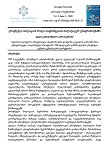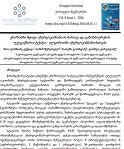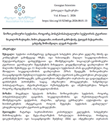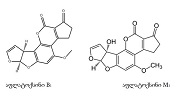Evidence-Based Pharmacy: A Scientific Approach to Safe and Effective Medication

Downloads
Evidence-Based Pharmacy (EBP) is a crucial approach that ensures the effective and safe use of pharmaceutical treatments in clinical settings. This practice is based on clinical trials, scientific research, official guidelines, and meta-analyses, enabling pharmacists to make optimal, patient-centered decisions. The effectiveness of pharmaceutical practice depends on the ability to interpret data, the reliability of conducted studies, and a personalized approach to treatment. This article examines the role and significance of evidence-based pharmacy, as well as its associated processes, including medication safety control, collaboration with healthcare professionals, and patient awareness campaigns. Given that this approach is rooted in scientific principles, its practical implementation requires continuous professional development, critical analysis of research findings, and close communication with other medical professionals. Evidence-based research reduces instances of ineffective treatments, enhances patient safety, prevents unnecessary costs, promotes the use of economically justified medications, and ultimately contributes to the optimization of the overall healthcare system. This article outlines the objectives of Evidence-Based Pharmacy as a scientifically validated approach and provides examples from recent decades of studies on the inefficacy and potential risks of certain OTC (over-the-counter) cough syrups. It highlights the importance of reliable scientific research in assessing the credibility of pharmaceutical effects, offering effective treatment methods, and comparing established medications to select better alternatives. Furthermore, it presents key criteria for accurately interpreting research data. The study emphasizes the pivotal role of pharmacists in the implementation of evidence-based services and provides practical recommendations in this direction.
Downloads
Smith, J. A., & Nguyen, L. T. (2021). Implementing evidence-based pharmacy practice: Challenges and opportunities. Journal of Pharmacy Practice, 34(2), 123–130.
U.S. Food and Drug Administration. (2020). FDA requests removal of all ranitidine products (Zantac) from the market. Retrieved from https://www.fda.gov/news-events/press-announcements/fda-requests-removal-all-ranitidine-products-zantac-market
National Institute for Health and Care Excellence (NICE). (2014). Lipid modification: Cardiovascular risk assessment and the modification of blood lipids for the primary and secondary prevention of cardiovascular disease. NICE Clinical Guideline CG181.
Schroeder, K., & Fahey, T. (2020). Over-the-counter medications for acute cough in children and adults in ambulatory settings. Cochrane Database of Systematic Reviews, (1), CD001831.
Smith, S. M., Schroeder, K., & Fahey, T. (2021). Over-the-counter (OTC) medications for acute cough in children and adults in community settings. Cochrane Database of Systematic Reviews, (11), CD001831.
Chang, C. C., & Cheng, A. C. (2022). Effectiveness of antitussive agents in treating chronic cough: A meta-analysis. Lung, 200(4), 455–465.
Khan, R., & Patel, S. (2020). The role of evidence-based medicine in clinical pharmacy. International Journal of Clinical Pharmacy, 42(5), 1157–1165.
Garcia, M. M., & Johnson, M. S. (2022). Advancements in evidence-based pharmaceutical care. American Journal of Health-System Pharmacy, 79(14), 1234–1242.
Lee, H. Y., & Kim, S. Y. (2023). Evidence-based practice in community pharmacy: A systematic review. Research in Social and Administrative Pharmacy, 19(1), 45–53.
Sherer JT. Principles of Evidence-Based Medicine. In: Aparasu RR, Bentley JP. eds. Principles of Research Design and Drug Literature Evaluation, 2e. McGraw-Hill Education; 2020. Accessed March 19, 2025.
O'Connor, M., & Gallagher, P. (2024). Barriers to implementing evidence-based practices in hospital pharmacies. European Journal of Hospital Pharmacy, 31(3), 150–156.
Bosson L, Veyer F, Bardet J-D, Vermorel C, Foote A, Allenet B, Bosson J-L. Evidence-Based Pharmaceutical Care in Community Pharmacies: A Survey of 595 French Pharmacists. Pharmacy. 2023; 11(5):161. https://doi.org/10.3390/pharmacy11050161
Mak, I. W., Evaniew, N., & Ghert, M. (2014). Lost in translation: Animal models and clinical trials in cancer treatment. American Journal of Translational Research, 6(2), 114–118.
Hansen, L. A., & Tavassoli, M. (2021). Limitations of animal models in cancer research: A perspective from the pharmaceutical industry. British Journal of Cancer, 125(12), 1585–1592.
Jones, P. H., Davidson, M. H., Stein, E. A., Bays, H. E., McKenney, J. M., Miller, E., ... & Blasetto, J. W. (2003). Comparison of the efficacy and safety of rosuvastatin versus atorvastatin, simvastatin, and pravastatin across doses (STELLAR Trial). The American Journal of Cardiology, 92(2), 152-160.
Alexa JM, Richter M, Bertsche T. Enhancing Evidence-Based Pharmacy by Comparing the Quality of Web-Based Information Sources to the EVInews Database: Randomized Controlled Trial With German Community Pharmacists. J Med Internet Res. 2023 Jun 21;25:e45582. doi: 10.2196/45582. PMID: 37342085; PMCID: PMC10337305.
Sun J, Chen GM, Huang J. Effect of Evidence-Based Pharmacy Care on Satisfaction and Cognition in Patients with Non-Valvular Atrial Fibrillation Taking Rivaroxaban. Patient Prefer Adherence. 2021 Jul 25;15:1661-1670. doi: 10.2147/PPA.S316008. PMID: 34345166; PMCID: PMC8321436.
Copyright (c) 2025 Georgian Scientists

This work is licensed under a Creative Commons Attribution-NonCommercial-NoDerivatives 4.0 International License.

























































































































































































































